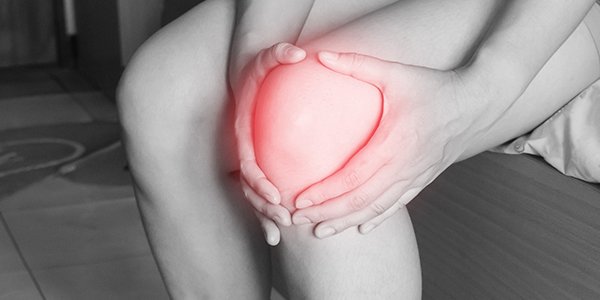
How to Exercise With Arthritis and Sore Joints
February 21, 2018
Cauliflower Breadsticks
February 21, 2018Wondering why the same tried-and-true tricks you used to lose weight back in your teens and twenties no longer work after 40? From a biological point of view, the answer is pretty simple: If we maintain the same diet and exercise habits we began in our twenties, most of us will inevitably put on some weight — and the process of losing weight becomes much more difficult in middle age. Why is this? Our body composition, dietary needs, and hormones all shift, beginning for some as early as the mid-thirties. In order to maintain a healthy weight, certain lifestyle habits must be developed to counteract those changes. Here are five things you need to know about losing weight after 40:
1. Your Metabolism Starts to Slow Down in Your Thirties
If you’re eating the same amount of food you did 10 years ago, you are consuming too many calories. Beginning in your thirties, you will lose about 1 percent of your lean muscle mass every year in a natural process called sarcopenia. This process accelerates when you reach your forties. The amount of lean muscle mass you have directly influences the speed of your metabolism, as muscle burns more calories than fat. This includes the calories that you burn not only when you are active, but also while you are at rest. Knowing this, it is important to make healthy food choices that will fill you up on fewer calories, and to engage in activities to preserve and build up muscle mass.
2. Cardiovascular Exercises Aren’t Enough to Lose Weight
Many of my patients who have trouble losing weight describe a fitness routine that emphasizes running, biking, and aerobic training. While cardiovascular exercises are an important part of an active and healthy lifestyle, they do little to build up your lean muscle mass. Cardio exercises are excellent choices for heart health, fighting fatigue, reducing stress, and promoting better sleep. But cardio exercises burn not only fat, but muscle as well, further compromising the metabolism.
The best exercise for weight loss is strength training, or working out with weights. This will not only prevent the muscle loss discussed above, but will also accelerate your metabolism and replace your current body fat with muscle. Strength training provides many other wonderful health benefits as well, including stronger bones, lower blood pressure, a sharper memory, and reduced risks for heart disease, cancer, and type 2 diabetes.
If you have never exercised with weights before, ease into a routine using light hand weights and fewer repetitions. Build your way up in weight and intensity over time. I advise my patients to strength train for half an hour twice a week.
3. Filling Up on Lean Protein Sources Is Key
Simply cutting back on calories usually isn’t an effective weight loss technique. We need to not only cut back on calories, but also to make sure we are choosing the right types of calories. Lean protein sources such as fish, lean meats, eggs, and tofu feed and preserve our muscle mass, keep us feeling full longer than other foods, and keep the blood sugar steady, preventing the energy spikes and lows that can lead to overeating. Build your meals around protein sources, and include a variety of fresh produce and small amounts of whole grains so that meals are balanced and healthy. Cut back on or eliminate empty calories that do not provide your body with nourishment but do contribute to weight gain, such as white bread, white pasta, and added sugars.
4. Intermittent Fasting May Speed Up Metabolism
Evolution is a slow and gradual process. Since the typical modern diet does not resemble the diet humans have followed for the majority of history, our metabolisms are designed to work best on a “feast or famine” schedule. Our bodies store fat when food is plentiful, and burn it off in times of scarcity. Since most Americans do not experience periods of fasting, we retain that body fat and gain weight. Because of this, intermittent fasting is a very effective way to lose weight. Not only will our bodies burn off fat stores while we fast, but fasting has also been shown to reduce inflammation in the body, speed up metabolism, reduce blood pressure, and lower risks for type 2 diabetes.
I do not recommend skipping meals altogether, as the resulting hunger pangs may lead to overeating — and going without eating for extended periods of time decreases muscle mass. Instead, I advise my patients to swap out some meals throughout the week for a high protein smoothie. The protein content keeps you feeling full, protects your muscles, and encourages your body to burn off stored fat for energy. If you have a significant amount of weight to lose, plan for one all-smoothie day per week, and then substitute your breakfast or lunch for smoothies throughout the rest of the week. When selecting a protein powder, be sure to pick one that is unsweetened, contains less than 120 calories per serving, and contains around 20 grams of protein per serving. I have found that a whey and casein mix works well for weight loss, as whey protein reaches your muscles quickly, guarding against muscle loss, and casein digests slowly over the course of several hours, prolonging the feeling of satiety.
5. Lack of Sleep Can Cause Us to Overeat, So Get Those Zzz’s
Every process our bodies perform relies on adequate sleep. Our muscles are repaired while we sleep, and our hunger and satiety hormones also come into balance as we snooze. During sleep, the hormones that the metabolism relies on are regulated, we recover from the day’s stresses, and the parts of our brain responsible for memory building and rational decision-making are restored.
A study published in October 2010 in the Annals of Internal Medicine compared two groups of middle-aged people trying to lose weight and their sleep patterns. For four days, one group slept four-and-a-half hours per night, and the second slept eight-and-a-half hours per night. The members in the first group lost 60 percent more muscle and burned 55 percent less fat over the course of the study, demonstrating how sensitive the metabolism is to a lack of adequate sleep — even over a short period of time.
When we don’t sleep enough, our hunger and stress hormones surge the next day, encouraging us to overeat — especially on sweet and fatty foods. The areas of our brain responsible for rational decision-making are compromised, making it much harder to say “no” to temptation. We also lose our lean muscle mass and burn less fat when we don’t sleep enough, setting us up for weight gain. Make getting 7 to 9 hours per night a priority, and watch your weight loss efforts improve dramatically.
Credit: Thinkstock; Ruth Black/iStock.com


